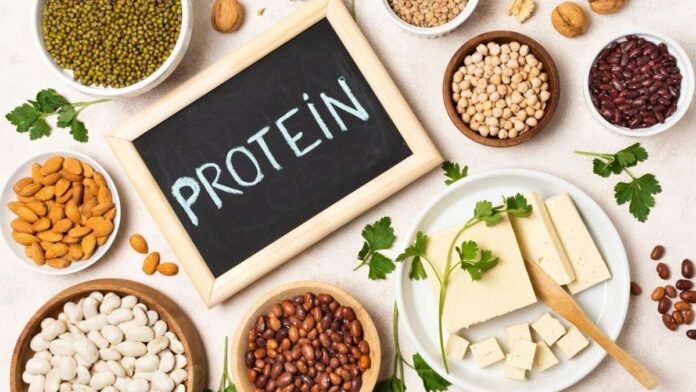Winter brings both festivities and delicious food as well as allergies and infections. But, there are several ways in which protein can help you stay fit in winter.
Winter is chilly and sluggish, but it also means parties and good food. Cold weather comes allergies and infections, therefore nutrition must be carefully considered. Along with exercise, healthy eating should be a routine. Thus, our bodies need proteins daily. Healthy adults need 0.6-0.8g/kg protein. Protein-rich foods include lentils, beans, chickpeas, soybeans, quinoa, almonds, seeds, dairy, eggs, poultry, fish, and meat.
Here’s how proteins keep us fit in winter:
Proteins maintain and develop muscle during strength training. Protein must be consumed regularly to prevent muscle loss during weight loss.
Winter brings more colds and flu, therefore a robust immune system is essential. By producing antibodies against germs and viruses, proteins improve immunity. Low protein raises infection risk. Vitamin B complex, vitamin E, vitamin K, zinc, magnesium, selenium, phosphorus, calcium, omega-3 fatty acids, and fiber in protein-rich diets assist gut flora combat sickness.
Proteins can offer energy when carbs are scarce. Snack nuts and seeds can fuel, satisfy, control appetite, and prevent overeating.
Improve metabolism: Winter lowers our core body temperature, requiring more energy to stay warm. Flexing muscles involuntarily doubles or quadruples metabolism. Due to their higher thermic impact, proteins require more energy to digest than fats and carbs. This warms the body.
Fullness and appetite suppression from high-protein diets help manage weight. Our cholecystokinin and peptide YY levels rise, indicating a full stomach. Protein can help manage weight and reduce overeating in winter, when people eat more heavy, calorie-dense foods.
A balanced diet containing proteins and other nutrients is needed for optimum health year-round.
Conclusion
Winter is cold and cheery, but it brings allergies and ailments. Lentils, beans, chickpeas, soybeans, quinoa, almonds, seeds, dairy, eggs, chicken, fish, and meat give 0.6-0.8g of protein per kilogram. Proteins build muscle, enhance immunity, fuel metabolism, and satisfy hunger. With vitamins B complex, E, K, zinc, magnesium, selenium, phosphorus, calcium, omega-3 fatty acids, and fiber, proteins support gut flora and combat infections. Year-round healthy eating demands a balanced diet with proteins and other elements.




